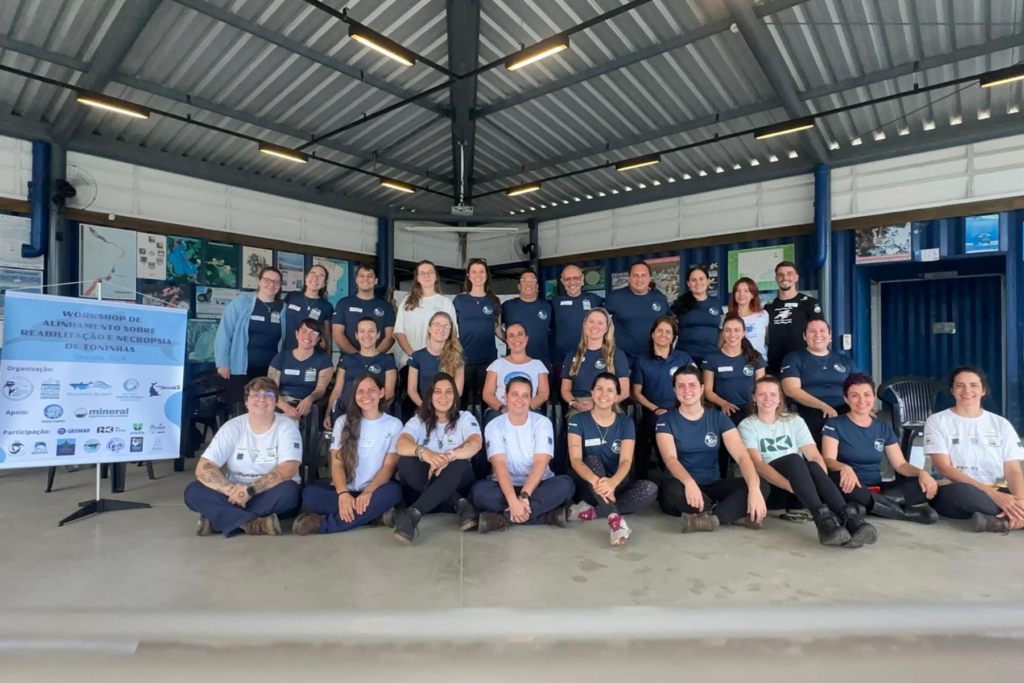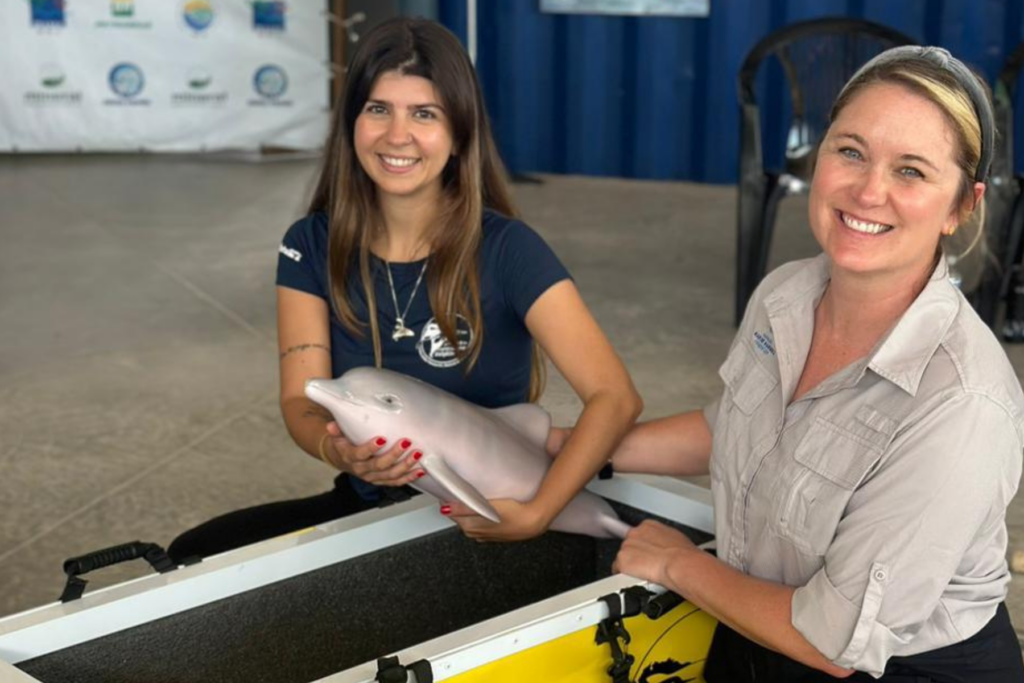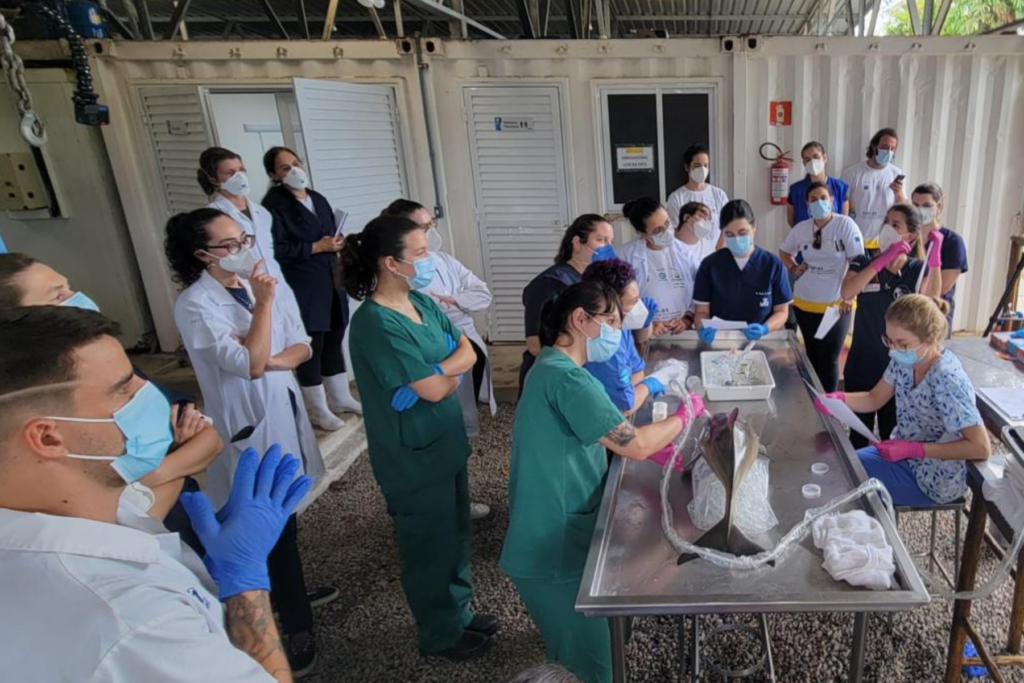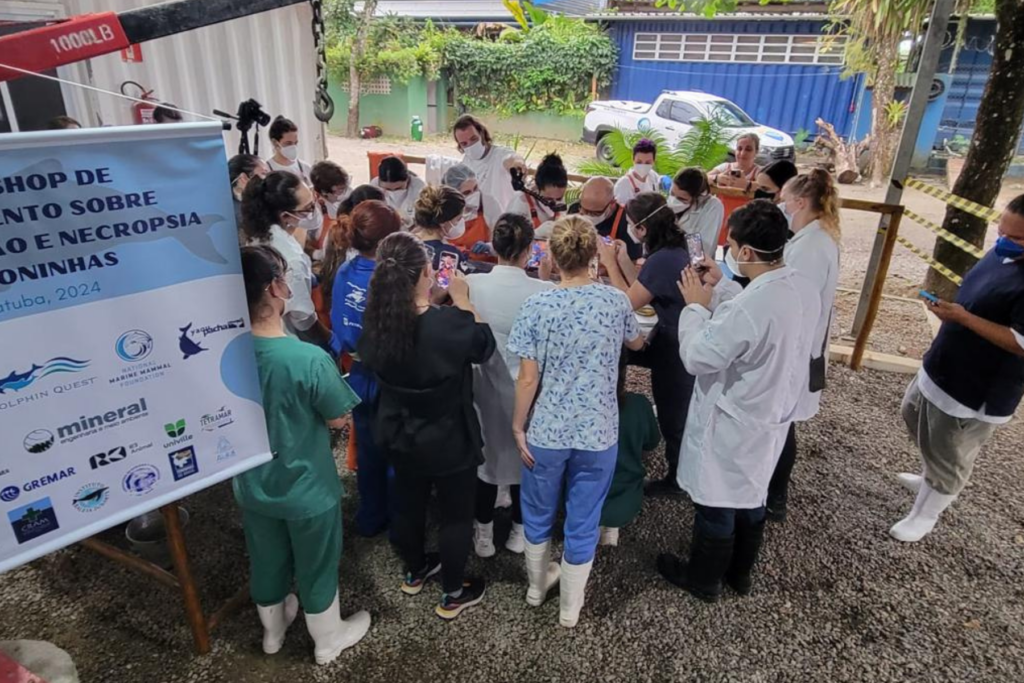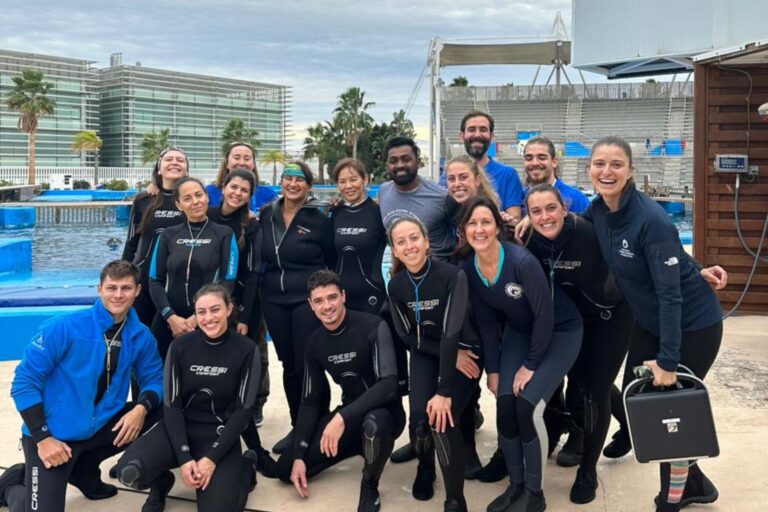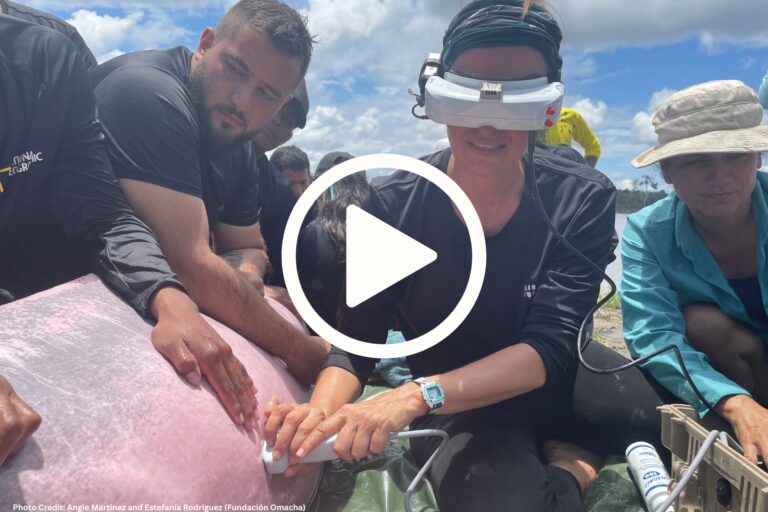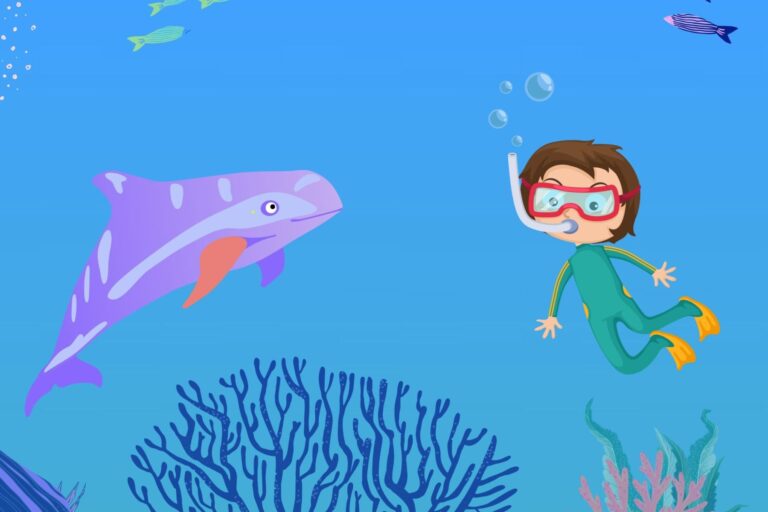International Workshop in Brazil Brings Hope for Protecting Vulnerable Species
Contact: Kristina Martz, ex******************@**mf.org
Originally published by Yaqu Pacha on November 13, 2024. See original article here.
Ubatuba, Brazil
From 8-10 November, the Alliance for the Franciscana Dolphin Conservation Research, Rescue and Rehabilitation (AFCR3) held a landmark workshop at the Instituto Argonauta to advance conservation efforts for the Franciscana dolphin (Pontoporia blainvillei). Led by Dr. Jenny Meegan of the National Marine Mammal Foundation (NMMF), USA, and Dr. Aricia Benvenuto of the University of São Paulo, Brazil, the event brought together 24 participants from various Brazilian institutions to focus on essential rehabilitation techniques and standardized necropsy protocols.
The workshop addressed two critical needs: the rehabilitation of stranded Franciscana dolphins, from newborns to adults, and the ability to perform standardized necropsies to identify threats and causes of mortality. The training used science-based protocols developed by the Alliance, a collaborative network of over 34 veterinarians, biologists, nutritionists and zoo technicians from Argentina, Uruguay, Brazil, the USA, Spain and Germany.
Urgent Need for Action
The Franciscana dolphin is listed as Vulnerable on the IUCN Red List of Threatened Species due to widespread threats such as bycatch, habitat loss and pollution. In Brazil, however, the species is even more vulnerable and is listed as Endangered on the country’s national Red List. The high frequency of live strandings underlines the urgent need for skilled rehabilitation, while necropsy data is essential to understand and address the causes of mortality.
“Workshops like this aren’t just about saving individuals, they’re about securing the future of a species,” said Dr. Jenny Meegan. “From our perspective, this is an opportunity to connect global expertise with local realities. Collaborations like this allow us to share advanced veterinary techniques and rehabilitation protocols developed internationally, ensuring that knowledge is accessible to those who need it most. The conservation of the Franciscana dolphin is a global responsibility, and every effort – no matter where it comes from – contributes to the survival of this species. The NMMF has learned a great deal from partnerships with conservation teams in other countries, and we’re honored to support the incredible work being done here in Brazil.”
Dr. Aricia Benvenuto emphasized the local perspective: “In Brazil, the Franciscana dolphin is a vital part of our marine biodiversity and its endangered status is a call to action for all of us. This workshop is crucial in equipping local professionals with the tools and knowledge needed to effectively respond to strandings and conduct meaningful research through necropsies. Strengthening Brazil’s capacity for marine mammal rescue and conservation is essential for the survival of this species. As someone who works directly with the marine ecosystems where these dolphins live, I see the urgent need for collaborative efforts like this. Together we can ensure that conservation is not just a concept, but a practical reality in the regions where it’s needed most.”
Why this Workshop is Important
The Alliance’s commitment to the conservation of the Franciscana depends on a multi-faceted approach, and this workshop exemplifies its goals:
- Improve rehabilitation success: Training enables participants to provide specialized care to stranded dolphins, increasing their chances of survival.
- Informed conservation strategies: Standardized necropsies provide critical data to combat anthropogenic threats, from fishing practices to environmental toxins.
- Global collaboration: The workshop highlights the Alliance’s commitment to sharing knowledge across borders and fostering international cooperation for species recovery.
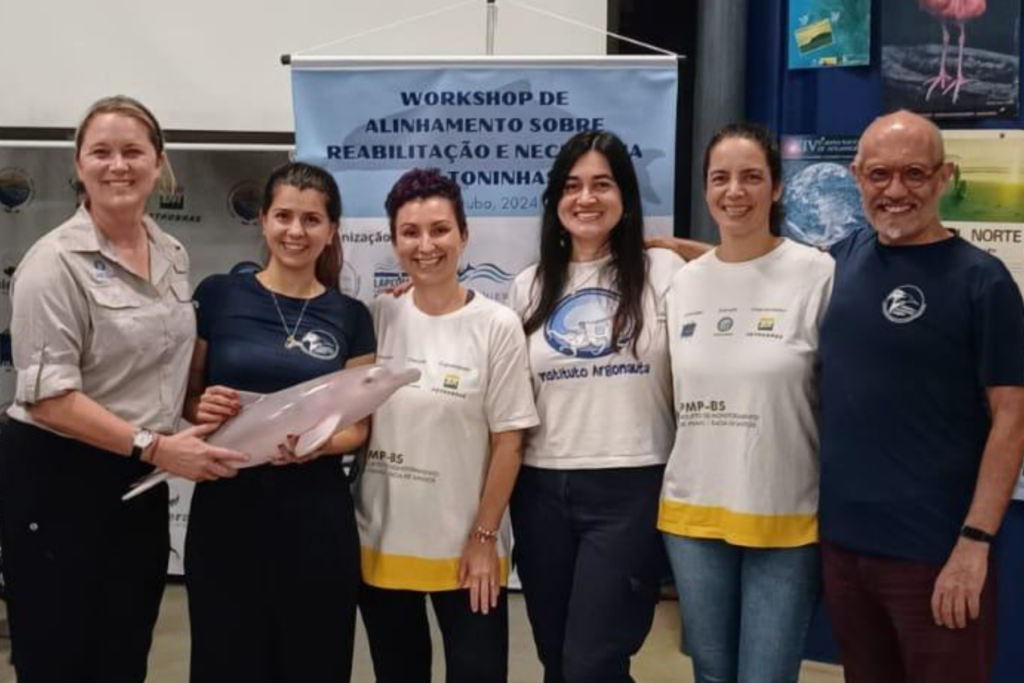
About the Alliance
The AFCR3 was created in 2019 and aims to assist with live strandings, provide essential equipment and expertise, and empower conservationists through training. Founding members YAQU PACHA and Nuremberg Zoo coordinate the Alliance’s activities with other institutions and drive its mission to protect the Franciscana. Many NGOs from South America, such as Fundación Mundo Marino, Karumbé, CRAM, R3 Animal, and AIUKA, are active members of this Alliance. Additionally, organizations like the National Marine Mammal Foundation (NMMF) and Dolphin Quest from the U.S., as well as L’Oceanogràfic, Nuremberg Zoo and YAQU PACHA from Europe, are providing critical support to this initiative. This diverse coalition underscores the importance of global collaboration in safeguarding the future of the Franciscana dolphin.
Dr. Lorenzo von Fersen, Chairman of YAQU PACHA, emphasized the organization’s long-standing commitment: “YAQU PACHA has been focused on the conservation of the Franciscana dolphin for almost 26 years. One of our main goals is to strengthen the capacity of local experts and institutions, ensuring that they are equipped with the tools and knowledge needed to protect this remarkable species. Collaboration and education are at the heart of our work and this workshop is a testament to those values.
The success of the workshop was greatly supported by Instituto Argonauta, whose team provided exceptional logistical and technical assistance. Their commitment to marine conservation and hands-on experience in dealing with stranded marine mammals made them an invaluable partner in this event.
This workshop is a crucial step in bridging science and practice to ensure the future of one of the world’s most endangered dolphin species.
